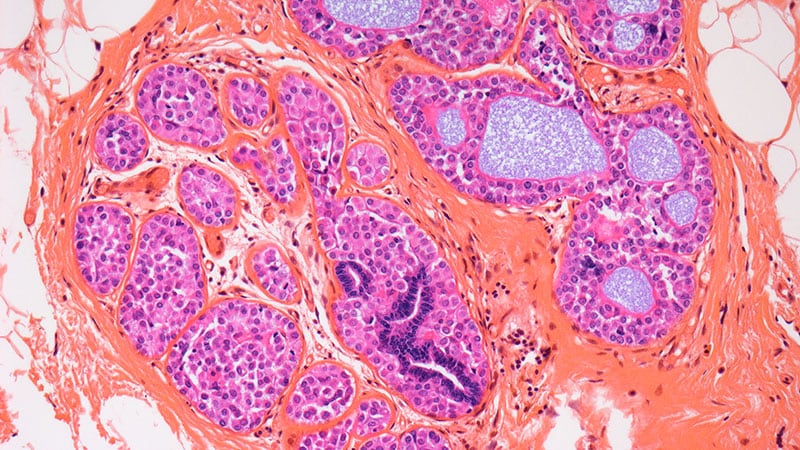The study covered in this summary was published on medrxiv.org as a preprint and has not yet been peer reviewed.
Key Takeaway
-
Endocrine therapy after mastectomy for hormone-positive ductal carcinoma in situ (DCIS) does not improve disease-free survival but does cause substantial adverse events.
Why This Matters
-
About 30% of patients with DCIS in the United States and over half in China have mastectomies.
-
Patients may also receive endocrine therapy afterward to help prevent contralateral recurrence.
-
On the basis of the current findings, the investigators recommended against endocrine therapy after a mastectomy, even for high-risk patients.
Study Design
-
The team reviewed disease-free survival (DFS) and adverse events in 1007 women who had mastectomies for DCIS at eight breast centers in China from 2006-2016.
-
They compared outcomes between the 791 women who had endocrine therapy afterward and the 216 who did not.
-
In the endocrine therapy group, 551 patients received tamoxifen, 223 had aromatase inhibitors, and the rest began on tamoxifen and switched to an aromatase inhibitor.
Key Results
-
There were no significant differences in demographic or clinical factors between the two groups.
-
Over 12 years of observation, tumors recurred in 2.4% of those in the endocrine therapy group and 1.85% of those in the non–endocrine therapy group.
-
The 5-year DFS rate was 98.4% with endocrine therapy vs 99.1% without it (P = .44).
-
Endocrine therapy offered no DFS advantage in subgroup analyses by age, tumor size, microinvasion status, tumor grade, and Ki67 levels.
-
Over 37% of patients in the endocrine therapy group vs 15.3% in the non–endocrine therapy group had at least one adverse event.
-
Hepatic, gynecologic, and musculoskeletal adverse events were significantly more common in the endocrine therapy group.
Limitations
-
It was a retrospective study limited to patients in China.
-
Compliance with and duration of endocrine therapy was not reported.
Disclosures
-
The work was funded by Shengjing Hospital and Liaoning Province.
-
The investigators didn’t report any disclosures.
This is a summary of a preprint research study, “Efficacy and safety of endocrine therapy after mastectomy in patients with hormone receptor positive breast ductal carcinoma in situ: retrospective cohort study,” led by Nan Niu of Shengjing Hospital of China Medical University, Shenyang, China, provided to you by Medscape. The study has not been peer reviewed. The full text can be found at medrxiv.org.
M. Alexander Otto is a physician assistant with a master’s degree in medical science and a journalism degree from Newhouse. He is an award-winning medical journalist who has worked for several major news outlets before joining Medscape and also an MIT Knight Science Journalism fellow. Email: [email protected].
For more news, follow Medscape on Facebook, Twitter, Instagram, and YouTube
Source: Read Full Article



